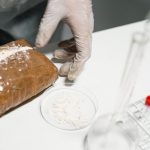Prague, the capital city of the Czech Republic, has been making headlines in recent years for its unique approach to addressing drug addiction and distribution. The city’s clean deal, also known as “pure cocaine,” has been a topic of discussion among experts and policymakers. In this article, we will delve into the details of Prague’s clean deal and explore its implications.
Pure cocaine refers to a program initiated by the Czech government to provide drug users with access to clean and safe cocaine. The program aims to reduce the risk of overdose and the spread of infectious diseases, such as HIV and hepatitis, associated with sharing needles. The idea is to provide users with a safe and controlled environment to consume cocaine, while also offering them support and counseling to help them overcome their addiction.
Key Components of the Program
- Safe Injection Sites: The program includes the establishment of safe injection sites where users can consume cocaine under the supervision of medical professionals.
- Counseling and Support: Users are offered counseling and support to help them address their addiction and underlying issues.
- Access to Clean Needles: The program provides users with access to clean needles and syringes to reduce the risk of infection.
Benefits and Challenges
The pure cocaine program in Prague has shown promising results, with a significant reduction in overdose deaths and a decrease in the spread of infectious diseases. However, the program also faces challenges, including criticism from some who argue that it enables addiction and undermines efforts to combat drug trafficking.
International Reaction and Comparison
The pure cocaine program in Prague has sparked a lot of debate and discussion internationally. Some countries, such as Portugal and Switzerland, have implemented similar programs, which have shown significant reductions in overdose deaths and crime rates. However, other countries, such as the United States, have been more skeptical, with some arguing that such programs enable addiction and undermine efforts to combat drug trafficking.
Comparison with Other Countries
- Portugal: Portugal’s drug policy, which includes decriminalization and provision of clean needles, has been hailed as a success, with a significant reduction in overdose deaths and HIV infections.
- Switzerland: Switzerland’s heroin prescription program, which provides users with access to clean heroin, has also shown promising results, with a reduction in crime rates and overdose deaths.
- United States: The US has been more cautious in its approach, with some states, such as California and New York, implementing needle exchange programs, while others have been more resistant to such initiatives.
Future Directions
As the world continues to grapple with the complexities of drug addiction and distribution, Prague’s pure cocaine program serves as a valuable case study. While there are challenges and criticisms, the program’s success in reducing overdose deaths and promoting public health suggests that it is an approach worth considering. As policymakers and experts look to the future, it is likely that we will see more innovative and evidence-based approaches to addressing drug addiction and distribution.
Expert Insights
According to Dr. Martin Šik, a leading expert on drug policy in the Czech Republic, “The pure cocaine program is a significant step forward in addressing drug addiction and distribution. By providing users with access to clean and safe cocaine, we can reduce the risk of overdose and promote public health.” Similarly, Dr. Peter Reuter, a renowned expert on drug policy, notes that “Prague’s approach is a valuable example of how to address drug addiction and distribution in a pragmatic and evidence-based way.”
Addressing Concerns and Criticisms
Despite the program’s successes, there are still concerns and criticisms that need to be addressed. One of the main concerns is that the program enables addiction and undermines efforts to combat drug trafficking. However, proponents of the program argue that it is a harm reduction strategy, aimed at reducing the negative consequences of drug use, rather than encouraging it.
Engaging with the Community
To address these concerns, the city of Prague has engaged in extensive community outreach and education efforts. This includes working with local residents, businesses, and community groups to raise awareness about the program and its goals. By engaging with the community, the city aims to build trust and support for the program, and to address any concerns or misconceptions that may exist.
Additionally, the program has also been designed to be flexible and adaptable, with ongoing evaluation and assessment to ensure that it is meeting its intended goals. This includes monitoring overdose deaths, HIV infections, and other health outcomes, as well as gathering feedback from users and the broader community.
Lessons Learned
So what can other cities and countries learn from Prague’s pure cocaine program? One key takeaway is the importance of a comprehensive and multifaceted approach to addressing drug addiction and distribution. This includes not only providing access to clean and safe drugs, but also offering counseling, support, and other services to help users overcome their addiction.
Another important lesson is the need for ongoing evaluation and assessment, to ensure that the program is meeting its intended goals and to identify areas for improvement. By continuously monitoring and evaluating the program, cities and countries can make data-driven decisions and ensure that their efforts are having the desired impact.
A Way Forward
Recommendations for Policymakers
- Consider a comprehensive approach: When addressing drug addiction and distribution, consider a comprehensive approach that includes access to clean and safe drugs, counseling, support, and other services.
- Engage with the community: Engage with local residents, businesses, and community groups to raise awareness and build support for the program.
- Continuously evaluate and assess: Continuously monitor and evaluate the program to ensure that it is meeting its intended goals and to identify areas for improvement.
By following these recommendations, policymakers can develop effective and evidence-based strategies to address drug addiction and distribution, and promote public health and safety.







I am skeptical about this program, it seems like it enables addiction rather than addressing the root cause of the problem.
I think the program\
It\
I think this program is a step in the right direction, providing a safe environment for users can help reduce overdose deaths and the spread of diseases.